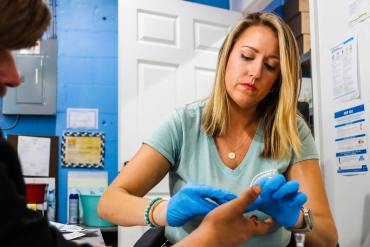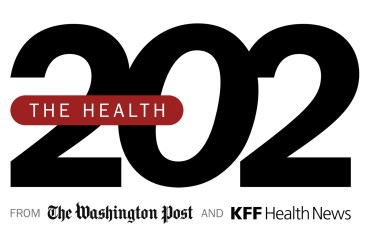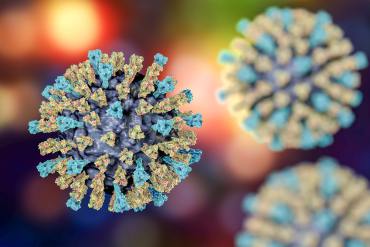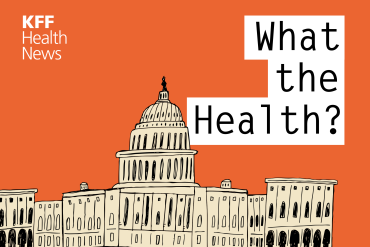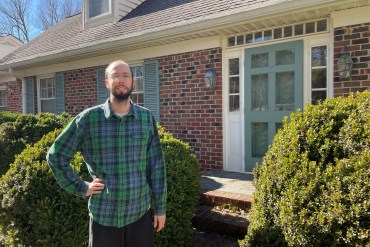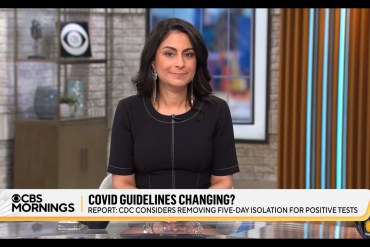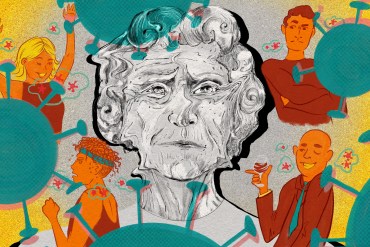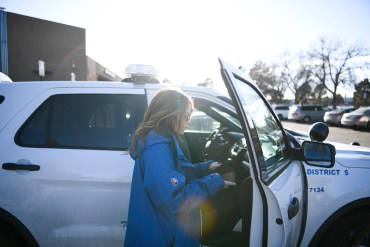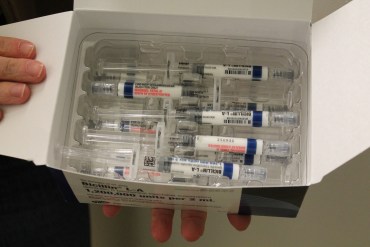Mezcla letal: se extiende el uso de fentanilo con sedantes para caballos
La xilacina se utiliza para sedar a los caballos. Ahora la están mezclando con fentanilo. Es letal y la naloxona no frena las sobredosis.
California Takes Up White House Call to Toughen Gun Storage Rules
State lawmakers are weighing legislation that would require gun owners to keep their firearms locked up most of the time, a move advocated by the Biden administration.
Toxic Gas That Sterilizes Medical Devices Prompts Safety Rule Update
The Environmental Protection Agency is tightening regulation of ethylene oxide, a carcinogenic gas used to sterilize medical devices. The agency is trying to balance the interests of the health care industry supply chain with those of communities where the gas creates airborne health risks.
The Supreme Court Confronts a Public Health Challenge: Homeless Encampments
Homelessness is a soaring public health crisis, with a record 653,000 unhoused people in the United States, according to federal estimates. Tent and recreational vehicle encampments have exploded in recent years, crowding streets and sidewalks from Portland, Ore., to New York. In California, where roughly a third of all the nation’s homeless people live, doctors […]
Horse Sedative Use Among Humans Spreads in Deadly Mixture of ‘Tranq’ and Fentanyl
Illegal supplies of fentanyl are being cut with xylazine, a powerful horse tranquilizer. Overdoses involving this veterinary sedative are growing nationally and now Florida officials are tracking the deaths.
Brote de sarampión: Florida dice que niños no vacunados pueden ir a la escuela, desafiando a los CDC
La mayoría de las personas que no están protegidas por una vacuna contraerán sarampión si se exponen al virus. Existe riesgo de muerte.
The state’s surgeon general grants parents permission to send unvaccinated children to school during a measles outbreak, risking their health and that of others.
What the Health? From KFF Health News: Alabama Court Rules Embryos Are Children. What Now?
In a first-of-its-kind ruling, the Alabama Supreme Court has determined that embryos created for in vitro fertilization procedures are legally people. The decision has touched off massive confusion about potential ramifications, and the University of Alabama-Birmingham has paused its IVF program. Meanwhile, former President Donald Trump is reportedly planning to endorse a national 16-week abortion ban, while his former administration officials are planning further reproductive health restrictions for a possible second term. Lauren Weber of The Washington Post, Rachana Pradhan of KFF Health News, and Victoria Knight of Axios join KFF Health News’ Julie Rovner to discuss these issues and more. Plus, for “extra credit,” the panelists suggest health policy stories they read this week that they think you should read, too.
Southern Lawmakers Rethink Long-Standing Opposition to Medicaid Expansion
While many Republican state lawmakers remain firmly against Medicaid expansion, some key leaders in holdout states are showing a willingness to reconsider. Public opinion, financial incentives, and widening health care needs make resistance harder.
What the Health? From KFF Health News: Biden Wins Early Court Test for Medicare Drug Negotiations
A federal district court judge dismissed a lawsuit attempting to invalidate the Biden administration’s Medicare prescription-drug price negotiation program. But the suit turned on a technicality, and several more court challenges are in the pipeline. Meanwhile, health policy pops up in Super Bowl ads, as Congress approaches yet another funding deadline. Alice Miranda Ollstein of Politico, Lauren Weber of The Washington Post, and Rachel Cohrs of Stat join KFF Health News’ Julie Rovner to discuss these issues and more. Plus, for “extra credit,” the panelists suggest health policy stories they read this week they think you should read, too.
Watch: The Feds Reexamine Covid Protocols. Here’s Why You Should Care.
KFF Health News’ Céline Gounder explains the “five-day rule” on covid safety, how guidelines and testing have evolved, and how best to protect yourself and others.
California Prison Drug Overdoses Surge Again After Early Treatment Success
Drug overdose deaths in California state prisons rebounded to near record levels last year, a big setback for corrections officials who thought they were on the right track with medication-assisted treatment efforts. Prison officials and attorneys representing prisoners blame fentanyl.
Do We Simply Not Care About Old People?
Recently, thousands of older Americans have been dying weekly of covid. But most Americans aren’t wearing masks in public, a move that could prevent infections. Many at-risk seniors aren’t getting antiviral therapies, and older adults in nursing homes aren’t getting vaccines. Why?
Cities Know That the Way Police Respond to Mental Crisis Calls Must Change. But How?
Cities are experimenting with new ways to meet the rapidly increasing demand for behavioral health crisis intervention, at a time when incidents of police shooting and killing people in mental health crisis have become painfully familiar.
Is Housing Health Care? State Medicaid Programs Increasingly Say ‘Yes’
States are using their Medicaid programs to offer poor and sick people housing services, such as paying six months’ rent or helping hunt for apartments. The trend comes in response to a growing homelessness epidemic, but experts caution this may not be the best use of limited health care money.
Back From COP28, California Climate Leaders Talk Health Impacts of Warming
Three leading California officials who represented the state at the United Nations climate talks late last year reflect on climate change’s growing threat to human health — and explain what the state is trying to do about it.
Congressman Off-Base in Ad Claiming Fauci Shipped Covid to Montana Before the Pandemic
Facts don’t support claims by a likely Republican Senate candidate that a federal research laboratory in Montana infected bats with a coronavirus from China before the covid-19 outbreak.
Possibility of Wildlife-to-Human Crossover Heightens Concern About Chronic Wasting Disease
A response is ramping up to a potential spillover of the neurological disease to humans from deer, elk, and other animals.
More ‘Navigators’ Are Helping Women Travel to Have Abortions
After the U.S. Supreme Court ended the federal right to an abortion and many states banned the procedure, reproductive health care organizations hired dozens of people to help patients arrange travel and pay for care.
Surge in Syphilis Cases Leads Some Providers to Ration Penicillin
Injectable penicillin is the go-to treatment for syphilis and the only treatment considered safe for pregnant people with the disease. But as rates of syphilis increase across the U.S., a shortage of the injectable has prompted some public health agencies to ration it.




